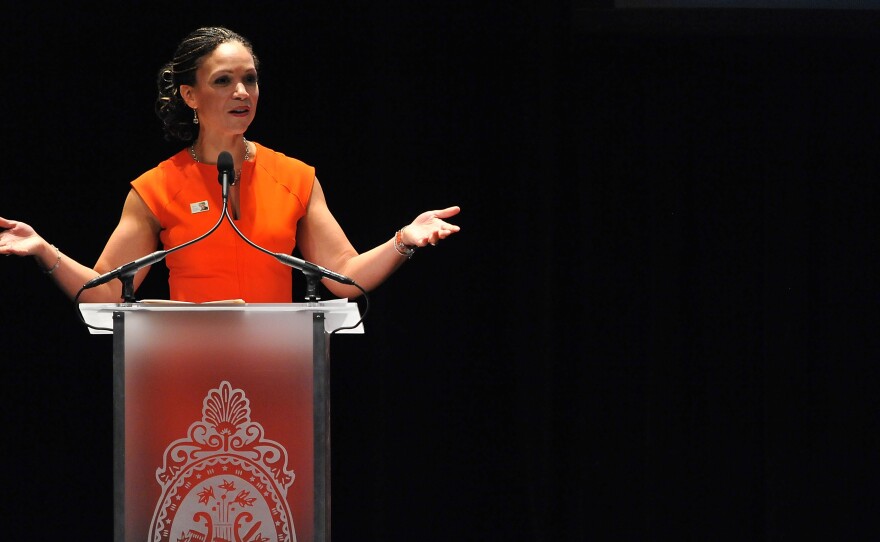When Melissa Harris-Perry refused to host her eponymous MSNBC talk show in late February, she said she was stepping back because over the past few weeks she had been "silenced." Shortly afterward, she and her network confirmed they had parted ways.
From the start, Harris-Perry and her employers had very different explanations for why things went south. Harris-Perry said her show was being undermined; MSNBC says it, like other shows, was temporarily affected by the election season.
The talk show host described her perspective in a letter to colleagues that was later posted on Medium. As the Two-Way reported at the time:
"In the letter, Harris explains why she objects to hosting ... after weeks of having her show preempted "without comment or discussion or notice," she says:" 'After four years of building an audience, developing a brand, and developing trust with our viewers, we were effectively and utterly silenced. Now, MSNBC would like me to appear for four inconsequential hours to read news that they deem relevant without returning to our team any of the editorial control and authority that makes MHP Show distinctive. ... Perry also described the 'insulting absurdity' of her exclusion from MSNBC's election coverage, alleging that she was traveling for the election season just like other MSNBC journalists — even staying in the same hotels — but wasn't included on air."
On All Things Considered today, NPR's David Folkenflik provides some context for the dispute:
"Under new NBC News President Andy Lack, the cable network shifted toward a newsier sensibility — as though, during the daytime, it was NBC News on cable. Several liberal opinion shows went by the wayside, though prime-time stayed the same. "MSNBC rebranded itself the place for politics and has won stronger daytime ratings as a result. Melissa Harris-Perry says she didn't want to be another political anchor reading the latest polls."
David spoke both to the host and to MSNBC President Phil Griffin. Where Harris-Perry saw a change in direction, away from questions of racial and social justice and toward "horse-race coverage," Griffin describes a temporary impact of rolling election coverage.
Many shows on MSNBC were affected by the election coverage, Griffin said, and Harris-Perry's show was safe.
"We had a four-year relationship with Melissa where we created this really terrific program that we loved and that brought different voices and was really part of the MSNBC sensibility," he told David.
Harris-Perry had objections beyond election-year scheduling shifts, David reports.
"It appears to be an air that is now more homogenous, less concerned with questions of racial and social justice, and less interested in highlighting a variety of concerns that shows like mine and others had been quite focused on over the last couple of years," she said,
She also said she believed MSNBC officials had failed to publicly support her during periods of public criticism.
You can hear the full story on All Things Considered.
Copyright 2016 NPR. To see more, visit http://www.npr.org/.






